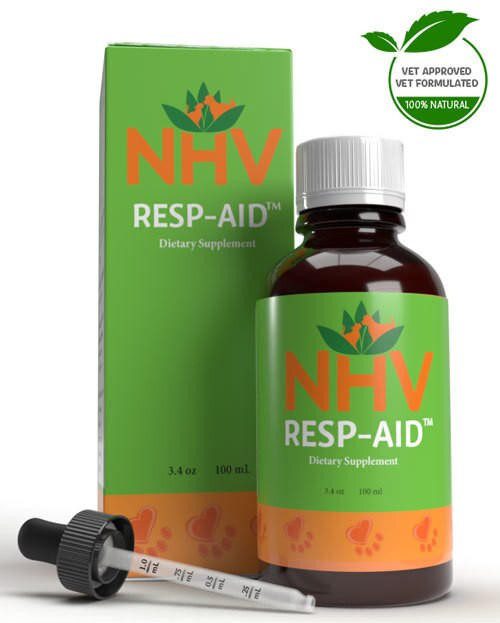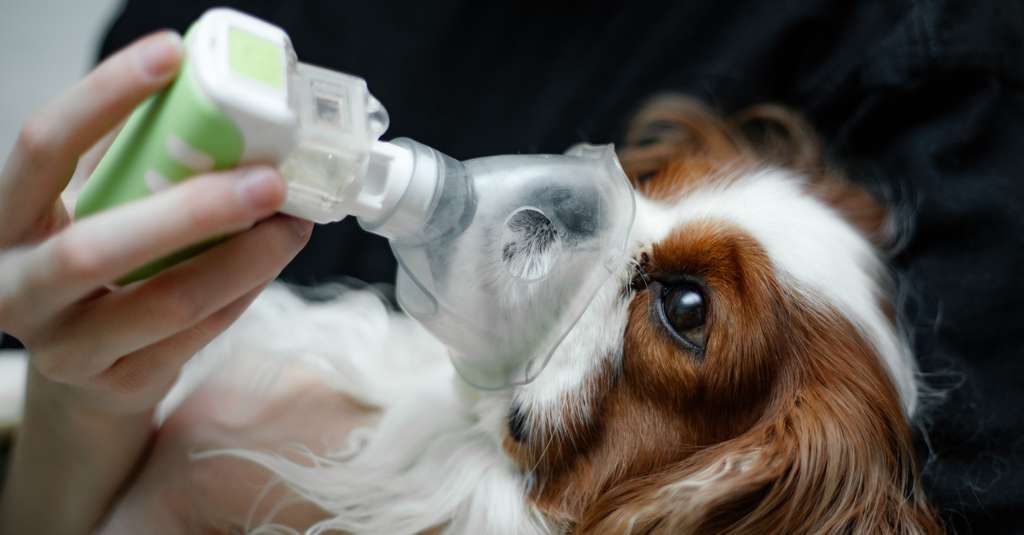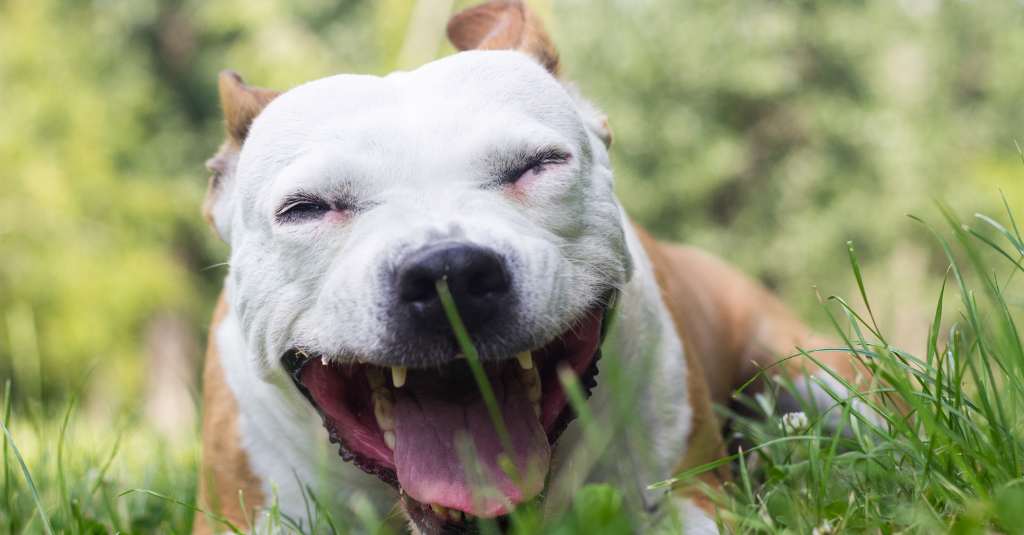respiratory support

free shipping over $100 (USA & Canada)
1-877-937-4372 the pet expert hotline

For Coughs, Respiratory Disorders, and Bronchial Infections in Cats


Bronchial asthma in pets is a condition that demands our attention and understanding. Just like humans, our furry friends can experience respiratory issues that significantly impact their quality of life. Recognizing the signs, understanding the causes, and seeking proper care are crucial steps in ensuring the well-being of our beloved pets.
Bronchial asthma is a chronic respiratory condition characterized by inflammation and constriction of the airways.
Bronchial asthma is a chronic respiratory condition characterized by inflammation and constriction of the airways. It makes it hard for pets to breathe comfortably. This condition can affect both dogs and cats and may lead to severe complications if left untreated.
So, what causes bronchial asthma in pets?
Various factors contribute to the development of bronchial asthma in pets, including genetics, environmental triggers, and exposure to allergens. While some pets may have a genetic predisposition, others may develop it due to exposure to irritants like smoke, dust, or pollen.

Bronchial asthma in pets can manifest in various ways, with clinical signs like coughing, wheezing, shortness of breath, and difficulty breathing. In severe cases, they may also experience lethargy, loss of appetite, and fainting spells.
Diagnostic tests for furkiddos with bronchial asthma include physical examinations, X-rays, and pulmonary function tests. These tests help veterinarians assess the extent of airway inflammation and constriction, aiding in proper diagnosis and treatment planning.
Treatment usually involves a combination of medication and lifestyle adjustments. Bronchodilators and corticosteroids are commonly prescribed to reduce inflammation and improve airflow. Additionally, avoiding triggers and providing a stress-free environment can help manage the condition effectively.

Caring for a pet with bronchial asthma requires patience, understanding, and diligence. Keep your home free of potential irritants like smoke or strong odors, and maintain cleanliness. Monitor your pet’s symptoms closely and follow your veterinarian’s recommendations for medication and regular check-ups.
NHV Supplements & Bronchial Asthma in Pets
When managing bronchial asthma, natural supplements like NHV Resp-Aid can offer additional support. Clinical trials and surveys have shown promising results, suggesting Resp-Aid may help reduce the frequency and severity of asthma attacks and improve overall respiratory health.
NHV Resp-Aid is a natural supplement designed to support respiratory health in pets. Its efficacy lies in its unique pathway of action. Through clinical trials conducted at the University of Saskatchewan, it has been found that Resp-Aid acts on a specific pathway, reducing the release of histamines and other cytokines, thus ameliorating the symptoms of asthma. The results of these trials were published in the Journal of Immunology and presented at various conferences and venues, demonstrating the credibility and effectiveness of Resp-Aid. Moreover, a survey involving more than 30 pets revealed promising results. All pet owners described that Resp-Aid helped their pets with asthma, decreasing crises, and in some cases, controlling symptoms completely without the use of vet-prescribed medications.
Bronchial asthma in pets is a serious condition that demands proactive management and compassionate care. Recognize the signs, visit your vet, and find the right treatment. Early action is key! This ensures your pet lives a happy, comfy life. So don’t hesitate to consult your veterinarian if you suspect your pet may have bronchial asthma. Together, we can prioritize the well-being of our beloved animals.
respiratory support

Resp-Aid™ & Stimmune
bundle and save with pet expert kits
3 month supply for a small to medium size pet.
What is it?
NHV’s Asthma Kit For Respiratory Support contains our primary dog and cat asthma natural remedies: Resp-Aid™ and Stimmune. Together, they help to support asthma symptoms like respiratory discomfort, may help reduce inflammation in the airways, and support furkiddos’ immune systems.
How Does it Work?
Why Should I Trust It?
Safe, natural, and easy-to-give supplements.


What is it?
NHV’s Asthma Kit For Respiratory Support contains our primary dog and cat asthma natural remedies: Resp-Aid™ and Stimmune. Together, they help to support asthma symptoms like respiratory discomfort, may help reduce inflammation in the airways, and support furkiddos’ immune systems.
How Does it Work?
Why Should I Trust It?
Safe, natural, and easy-to-give supplements.

Is asthma in cats or dogs a concern for you and your furry little one? That constant coughing and difficulty breathing can definitely be hard on them. That’s why pet parents should provide extra support however they can.
NHV’s Asthma Kit For Respiratory Relief may help soothe asthma symptoms, alleviate the swelling caused by allergens, and strengthen your furkid’s immune system. This bundle contains Resp-Aid™ and Stimmune.
All our supplements are safe for long-term use and liquid-based, so you can simply give it to them by mouth or mixing it into their meals.
Asthma in cats and dogs is a respiratory condition resulting from an allergic reaction. It happens when your furkid inhales an allergen, which causes the airways of their lungs to inflame and narrow. Consequently, it becomes more difficult for our furriends to breathe.
Asthma in cats will affect around 1-5% of our kitty friends. Even though asthma in dogs is more uncommon, our pups can also suffer from asthma attacks. Small and middle-aged dogs are usually at the highest risk for this condition.
Besides difficulty breathing, this recurring inflammation also results in various other symptoms:
If you notice these asthma signs, your little one is likely to have asthma. Please visit a vet immediately for a full body examination and a correct diagnosis. An earlier diagnosis can help your furkid get the right treatment sooner.
On top of the traditional cat and dog asthma medicine, NHV herb-based supplements like the ones in our Asthma Kit For Respiratory Relief can also assist your furkiddo on their road to recovery.
Resp-Aid™ is a vet-formulated extract designed to help furkiddos with respiratory issues. The unique blend of herbs helps support the symptoms of asthma. For example, herbs like Coltsfoot help keep coughs under control. Lobelia and Horehound may also help relieve spasms and reduce mucus accumulation.
In addition, this supplement helps soothe irritating tissues in furkids’ lungs and has powerful anti-inflammatory properties.
Since asthma is usually caused by furkids breathing in allergens, we also added our primary support for allergy, Stimmune, to the kit. This formula of herbal extracts can help balance your little one’s immune system, regulating their body’s reaction to external allergens.
On top of that, Echinacea Purpurea and Myrrh can help relieve irritation and inflammation. The supplement may also help increase the energy of your little one.
NHV supplements are all 100% natural and herb-based, including the ones in this kit. A holistic veterinarian and master herbalist with a combined 50+ years of experience formulating every extract.
If you have any questions regarding asthma in cats and dogs or anything else, feel free to reach out to one of our supportive Pet Experts! We are always here to help!
Help your furkid with asthma now by ordering our Asthma Kit For Respiratory Relief.
All NHV supplements are made with the finest quality organic or ethically harvested herbs. We use non-GMO vegetable glycerin as our base. NHV products are full-spectrum extracts.
Select your pet's weight to determine the correct dose.
To be taken twice daily. Determine your pet’s weight and then use the easy chart below to determine the correct dose. This is the minimum dosage.
Pet's Weight Dosage
0 - 15 lb = 0.5 ml
16 - 30 lb = 1.0 ml
31 - 45 lb = 1.5 ml
46 - 60 lb = 2.0 ml
61 - 75 lb = 2.5 ml
Over 75 lb = 3.0 ml
How to Administer
Shake well before use. The easiest method is to use the dropper provide and places the drops into your pet’s food or favorite treat. You can also use the dropper and squirt directly into the pet’s mouth.
Some pets can be finicky, if this occurs consider hiding the drops in foods most pet’s love such as fish, chicken or yogurt or a favorite treat. If your pet only eats dry food then soak a few kibbles at feeding time.
For Best Results
Herbal dietary supplements are beneficial to the health and wellbeing of your pet and are safe for long-term use. Every pet responds to natural herbal supplements differently, therefore it is important to be consistent and administer the product daily. Supplements generally take two to four weeks to take effect, however this will vary from one animal to the next.
Product Storage
All NHV Natural Pet Products are pure herbal extracts and contain no artificial additives, preservatives or coloring. Shelf life after opening is 6 months and must be refrigerated after opening.
Cautions and Contraindications: Do not use Turmeric in pregnant or nursing animals. Speak to your vet before using our products. A second visit is recommended if your pet’s condition does not improve, or deteriorates after continued use of the supplements.
Is asthma in cats or dogs a concern for you and your furry little one? That constant coughing and difficulty breathing can definitely be hard on them. That’s why pet parents should provide extra support however they can.
NHV’s Asthma Kit For Respiratory Relief may help soothe asthma symptoms, alleviate the swelling caused by allergens, and strengthen your furkid’s immune system. This bundle contains Resp-Aid™ and Stimmune.
All our supplements are safe for long-term use and liquid-based, so you can simply give it to them by mouth or mixing it into their meals.
Asthma in cats and dogs is a respiratory condition resulting from an allergic reaction. It happens when your furkid inhales an allergen, which causes the airways of their lungs to inflame and narrow. Consequently, it becomes more difficult for our furriends to breathe.
Asthma in cats will affect around 1-5% of our kitty friends. Even though asthma in dogs is more uncommon, our pups can also suffer from asthma attacks. Small and middle-aged dogs are usually at the highest risk for this condition.
Besides difficulty breathing, this recurring inflammation also results in various other symptoms:
If you notice these asthma signs, your little one is likely to have asthma. Please visit a vet immediately for a full body examination and a correct diagnosis. An earlier diagnosis can help your furkid get the right treatment sooner.
On top of the traditional cat and dog asthma medicine, NHV herb-based supplements like the ones in our Asthma Kit For Respiratory Relief can also assist your furkiddo on their road to recovery.
Resp-Aid™ is a vet-formulated extract designed to help furkiddos with respiratory issues. The unique blend of herbs helps support the symptoms of asthma. For example, herbs like Coltsfoot help keep coughs under control. Lobelia and Horehound may also help relieve spasms and reduce mucus accumulation.
In addition, this supplement helps soothe irritating tissues in furkids’ lungs and has powerful anti-inflammatory properties.
Since asthma is usually caused by furkids breathing in allergens, we also added our primary support for allergy, Stimmune, to the kit. This formula of herbal extracts can help balance your little one’s immune system, regulating their body’s reaction to external allergens.
On top of that, Echinacea Purpurea and Myrrh can help relieve irritation and inflammation. The supplement may also help increase the energy of your little one.
NHV supplements are all 100% natural and herb-based, including the ones in this kit. A holistic veterinarian and master herbalist with a combined 50+ years of experience formulating every extract.
If you have any questions regarding asthma in cats and dogs or anything else, feel free to reach out to one of our supportive Pet Experts! We are always here to help!
Help your furkid with asthma now by ordering our Asthma Kit For Respiratory Relief.
All NHV supplements are made with the finest quality organic or ethically harvested herbs. We use non-GMO vegetable glycerin as our base. NHV products are full-spectrum extracts.
Select your pet's weight to determine the correct dose.
To be taken twice daily. Determine your pet’s weight and then use the easy chart below to determine the correct dose. This is the minimum dosage.
Pet's Weight Dosage
0 - 15 lb = 0.5 ml
16 - 30 lb = 1.0 ml
31 - 45 lb = 1.5 ml
46 - 60 lb = 2.0 ml
61 - 75 lb = 2.5 ml
Over 75 lb = 3.0 ml
How to Administer
Shake well before use. The easiest method is to use the dropper provide and places the drops into your pet’s food or favorite treat. You can also use the dropper and squirt directly into the pet’s mouth.
Some pets can be finicky, if this occurs consider hiding the drops in foods most pet’s love such as fish, chicken or yogurt or a favorite treat. If your pet only eats dry food then soak a few kibbles at feeding time.
For Best Results
Herbal dietary supplements are beneficial to the health and wellbeing of your pet and are safe for long-term use. Every pet responds to natural herbal supplements differently, therefore it is important to be consistent and administer the product daily. Supplements generally take two to four weeks to take effect, however this will vary from one animal to the next.
Product Storage
All NHV Natural Pet Products are pure herbal extracts and contain no artificial additives, preservatives or coloring. Shelf life after opening is 6 months and must be refrigerated after opening.
Cautions and Contraindications: Do not use Turmeric in pregnant or nursing animals. Speak to your vet before using our products. A second visit is recommended if your pet’s condition does not improve, or deteriorates after continued use of the supplements.
collapsed trachea support


Resp-Aid, Lesstress, Turmeric & PetOmega 3
bundle and save with pet expert kits
3 month supply for a small to medium size
What is it?
NHV's all-natural, vet-formulated Tracheal Collapse Support bundle for pets helps relieve symptoms of tracheal collapse in dogs and other pets.
How does it work?
Why should I trust it?
NHV supplements are vet-formulated and vet-approved.


What is it?
NHV's all-natural, vet-formulated Tracheal Collapse Support bundle for pets helps relieve symptoms of tracheal collapse in dogs and other pets.
How does it work?
Why should I trust it?
NHV supplements are vet-formulated and vet-approved.

Tracheal Collapse Support for Pets
Tracheal collapse is an acquired, non-congenital disease. It can occur in the neck region, within the chest, where the trachea is located, or in both locations. The cartilage rings of the trachea (windpipe) are shaped like the letter C, lying on its back. A small membrane covers the top of the ring. The cartilage loses its rigidity, and the membrane stretches. For this reason, the rings may collapse, the windpipe flattened, and mild to severe obstruction of the airway may develop.
The cause is not well understood, but proposed theories include genetic factors such as breed, nutritional influences, neurologic problems, and degeneration of the tracheal cartilages.
Symptoms of Tracheal Collapse in Dogs and Cats
A Powerful Complete Kit
The herbs present in each of these formulations have anti-inflammatory and antioxidant properties and help support the symptoms of pets suffering from a collapsed trachea, like shortness of breath, stress, discomfort, and inflammation caused by it.
Carefully chosen, each supplement works synergistically in your pet’s body to balance the immune system and support the respiratory and circulatory tracts that might be compromised due to this condition.
NHV’s Tracheal Collapse Support Kit is a vet-formulated bundle with 4 all-natural herbal blends designed to support a pet suffering from collapsed trachea. NHV’s Resp-Aid, NHV’s Lesstress, NHV’s Turmeric, and NHV’s PetOmega 3 are combined in this bundle to help relieve symptoms of tracheal collapse and balance your pet’s immune system.
If you have questions about holistic remedies, you can ask an expert at NHV because we want your pet to get healthy naturally.
Select your pet's weight to determine the correct dose.
Resp-Aid: Resp-Aid is an anti-inflammatory, antibiotic, and healing formulation that helps with upper respiratory congestion helps fight infection and relieves shortness of breath. As tracheal collapse is an anatomic issue Resp Aid can be helpful to help the lungs and trachea that are in distress in this situation.
Coltsfoot — Helps to control coughing and is a natural expectorant.
Ginger — Relieves discomfort and stimulates circulation.
Horehound — Relieves spasms and aids with cough and mucus
Licorice — A fast-acting versatile herb that helps support many respiratory ailments.
Lobelia — A potent herb that causes the immediate relaxation and expansion of the respiratory system allowing oxygenated blood to flow freely.
Marshmallow — Helps control bacterial infections and soothes irritated tissues
Mullein — Soothes and lubricates tissue
Myrrh — A stimulant that relieves spasms, inflammation, and digestive upset.
Plantain — An expectorant that soothes and lubricates internal mucous membranes.
Lesstress: As some pets can benefit from the use of relaxants during periods of excitement, since excitement may result in severe respiratory distress. Lesstress, a natural herbal formulation designed to calm and relax a pet, can be helpful. It is an herbal formulation that acts on the nervous and immune systems, calming anxiety.
Chamomile – Has analgesic and sedative properties.
Passionflower – Contains alkaloids and flavonoids, two effective sedatives.
Lemon Balm – A relaxing tonic with a sedating effect.
Reishi – A herb with sedative properties that boosts heart and liver function and stimulates the immune system.
Eleuthero – A tonic with a modulating effect on your dog’s major stress axis including the pituitary glands, the hypothalamus, and the adrenal glands. It also helps dogs develop a healthy resistance to stress.
Echinacea Angustifolia – Contains powerful immune-stimulating properties.
Turmeric: Turmeric has anti-inflammatory properties and may be used to help reduce the inflammation of the lining of the trachea.
Curcumin - Studies have shown turmeric to be an excellent anti-inflammatory, antioxidant, antifungal, antibacterial, anticoagulant, antiseptic, astringent, helps with liver function, bile production and externally for wound healing
PetOmega 3: A daily supplement to enhance overall health and wellbeing. Omega-3 fatty acids will be helpful in supporting cardiac health and his lungs that may be affected by the collapsed trachea.
Fish Oil (Anchovy and Sardine) and Cod Liver Oil - The Eicosatetraenoic acid (EPA) and docosahexaenoic acid (DHA) are omega-3 fatty acids found in fish oils and they help support heart function and immune system as well as reduce inflammation.
Tracheal Collapse Support for Pets
Tracheal collapse is an acquired, non-congenital disease. It can occur in the neck region, within the chest, where the trachea is located, or in both locations. The cartilage rings of the trachea (windpipe) are shaped like the letter C, lying on its back. A small membrane covers the top of the ring. The cartilage loses its rigidity, and the membrane stretches. For this reason, the rings may collapse, the windpipe flattened, and mild to severe obstruction of the airway may develop.
The cause is not well understood, but proposed theories include genetic factors such as breed, nutritional influences, neurologic problems, and degeneration of the tracheal cartilages.
Symptoms of Tracheal Collapse in Dogs and Cats
A Powerful Complete Kit
The herbs present in each of these formulations have anti-inflammatory and antioxidant properties and help support the symptoms of pets suffering from a collapsed trachea, like shortness of breath, stress, discomfort, and inflammation caused by it.
Carefully chosen, each supplement works synergistically in your pet’s body to balance the immune system and support the respiratory and circulatory tracts that might be compromised due to this condition.
NHV’s Tracheal Collapse Support Kit is a vet-formulated bundle with 4 all-natural herbal blends designed to support a pet suffering from collapsed trachea. NHV’s Resp-Aid, NHV’s Lesstress, NHV’s Turmeric, and NHV’s PetOmega 3 are combined in this bundle to help relieve symptoms of tracheal collapse and balance your pet’s immune system.
If you have questions about holistic remedies, you can ask an expert at NHV because we want your pet to get healthy naturally.
Select your pet's weight to determine the correct dose.
Resp-Aid: Resp-Aid is an anti-inflammatory, antibiotic, and healing formulation that helps with upper respiratory congestion helps fight infection and relieves shortness of breath. As tracheal collapse is an anatomic issue Resp Aid can be helpful to help the lungs and trachea that are in distress in this situation.
Coltsfoot — Helps to control coughing and is a natural expectorant.
Ginger — Relieves discomfort and stimulates circulation.
Horehound — Relieves spasms and aids with cough and mucus
Licorice — A fast-acting versatile herb that helps support many respiratory ailments.
Lobelia — A potent herb that causes the immediate relaxation and expansion of the respiratory system allowing oxygenated blood to flow freely.
Marshmallow — Helps control bacterial infections and soothes irritated tissues
Mullein — Soothes and lubricates tissue
Myrrh — A stimulant that relieves spasms, inflammation, and digestive upset.
Plantain — An expectorant that soothes and lubricates internal mucous membranes.
Lesstress: As some pets can benefit from the use of relaxants during periods of excitement, since excitement may result in severe respiratory distress. Lesstress, a natural herbal formulation designed to calm and relax a pet, can be helpful. It is an herbal formulation that acts on the nervous and immune systems, calming anxiety.
Chamomile – Has analgesic and sedative properties.
Passionflower – Contains alkaloids and flavonoids, two effective sedatives.
Lemon Balm – A relaxing tonic with a sedating effect.
Reishi – A herb with sedative properties that boosts heart and liver function and stimulates the immune system.
Eleuthero – A tonic with a modulating effect on your dog’s major stress axis including the pituitary glands, the hypothalamus, and the adrenal glands. It also helps dogs develop a healthy resistance to stress.
Echinacea Angustifolia – Contains powerful immune-stimulating properties.
Turmeric: Turmeric has anti-inflammatory properties and may be used to help reduce the inflammation of the lining of the trachea.
Curcumin - Studies have shown turmeric to be an excellent anti-inflammatory, antioxidant, antifungal, antibacterial, anticoagulant, antiseptic, astringent, helps with liver function, bile production and externally for wound healing
PetOmega 3: A daily supplement to enhance overall health and wellbeing. Omega-3 fatty acids will be helpful in supporting cardiac health and his lungs that may be affected by the collapsed trachea.
Fish Oil (Anchovy and Sardine) and Cod Liver Oil - The Eicosatetraenoic acid (EPA) and docosahexaenoic acid (DHA) are omega-3 fatty acids found in fish oils and they help support heart function and immune system as well as reduce inflammation.
respiratory support

Resp-Aid & Stimmune
bundle and save with pet expert kits
3 month supply for a small to medium size pet
What is it?
The NHV Kennel Cough Kit contains natural vet-approved dog kennel cough supplements designed to help prevent and manage the symptoms of Kennel Cough. These herbal remedies not only support coughs and respiratory issues, they also balance the immune system.
How does it work?
Why trust it?
NHV formulas are vet-made and vet-approved.


What is it?
The NHV Kennel Cough Kit contains natural vet-approved dog kennel cough supplements designed to help prevent and manage the symptoms of Kennel Cough. These herbal remedies not only support coughs and respiratory issues, they also balance the immune system.
How does it work?
Why trust it?
NHV formulas are vet-made and vet-approved.

Kennel cough, is predominately found in dogs and is a respiratory infection caused by Bordetella bronchiseptica, adenovirus and canine parainfluenza virus. These pathogens attack the cilia lining of the respiratory tract causing inflammation of the upper airway, resulting in a cough. This irritation makes your dog susceptible to secondary infection. Kennel cough is extremely contagious. In some cases, the situation may be complicated by secondary bacterial pneumonia. Extra care is required to prevent pneumonia and improve breathing.
When a dog has kennel cough or has been in contact with an infected animal it is just as important to support their immune system as it is to address the symptoms of the cough itself.
NHV Resp-aid is a dog kennel cough supplement that helps to sooth the upper respiratory tract, reduce inflammation, fight infection and ease congestion.
NHV Stimmune combined with the NHV Resp-aid offers the most benefit and support. This herbal formula is a very effective immune booster. Packed full of herbs that have antibiotic and antiviral properties, Stimmune not only boosts the immune system, but also helps to fight and prevent secondary infections that are commonly associated with kennel cough.
RESP-AID
Coltsfoot - Helps control coughing, relaxes spasms and soothes irritated tissue; is an expectorant and has antibacterial properties.
Marshmallow – An anti-inflammatory that controls bacterial infections and soothes and softens irritated tissues.
Plantain – An expectorant that soothes and lubricates internal mucous membranes.
Mullein – Soothes and lubricates tissues.
Horehound – Relieves spasms.
Licorice – A versatile herb that is a fast-acting anti-inflammatory agent ideal for the treatment of respiratory illnesses.
Lobelia – Relaxes and expands the respiratory system to allow oxygenated blood to flow freely.
Ginger – Relieves discomfort and stimulates circulation.
Myrrh – A stimulant that relieves spasms, inflammation, and digestive discomfort.
__________________________________________________
STIMMUNE
Astragalus - Stimulates liver function and improves the immune system.
Echinacea Purpurea – Reduces inflammation and helps boost the immune system and efficiently fight infection.
Oregon Grape – Has antibiotic and immunostimulatory properties.
Asian Ginseng – Improves appetite and increases organic resistance to diseases.
Myrrh – An astringent that relieves irritated skin.
Select your pet's weight to determine the correct dose.
To be taken twice daily. Determine your pet’s weight and then use the easy chart below to determine the correct dose. This is the minimum dosage.
Pet's Weight Dosage
0 - 15 lb = 0.5 ml
16 - 30 lb = 1.0 ml
31 - 45 lb = 1.5 ml
46 - 60 lb = 2.0 ml
61 - 75 lb = 2.5 ml
Over 75 lb = 3.0 ml
For small animals (rabbits, ferrets), avians and reptiles use 1 drop for every 2 lb of body weight.
How to Administer
Shake well before use. The easiest method is to use the dropper provided and place the drops into your pet’s food or favorite treat. You can also use the dropper and squirt directly into the pet’s mouth. Some pets can be finicky, if this occurs consider hiding the drops in foods most pet’s love such as fish, chicken or yogurt or a favorite treat. If your pet only eats dry food then soak a few kibbles at feeding time.
For Best Results
Herbal dietary supplements are beneficial to the health and well-being of your pet and are safe for long-term use. Every pet responds to natural herbal supplements differently, therefore it is important to be consistent and administer the product daily. Supplements generally take two to four weeks to take effect, however this will vary from one animal to the next.
Product Storage
All NHV Natural Pet Products are pure herbal extracts and contain no artificial additives, preservatives or coloring. Shelf life after opening is 6 months and must be refrigerated after opening.
Cautions and Contraindications
Do not use in pregnant or nursing animals.
All information provided by NHV Natural Pet Products is for educational purposes only.
Kennel cough, is predominately found in dogs and is a respiratory infection caused by Bordetella bronchiseptica, adenovirus and canine parainfluenza virus. These pathogens attack the cilia lining of the respiratory tract causing inflammation of the upper airway, resulting in a cough. This irritation makes your dog susceptible to secondary infection. Kennel cough is extremely contagious. In some cases, the situation may be complicated by secondary bacterial pneumonia. Extra care is required to prevent pneumonia and improve breathing.
When a dog has kennel cough or has been in contact with an infected animal it is just as important to support their immune system as it is to address the symptoms of the cough itself.
NHV Resp-aid is a dog kennel cough supplement that helps to sooth the upper respiratory tract, reduce inflammation, fight infection and ease congestion.
NHV Stimmune combined with the NHV Resp-aid offers the most benefit and support. This herbal formula is a very effective immune booster. Packed full of herbs that have antibiotic and antiviral properties, Stimmune not only boosts the immune system, but also helps to fight and prevent secondary infections that are commonly associated with kennel cough.
RESP-AID
Coltsfoot - Helps control coughing, relaxes spasms and soothes irritated tissue; is an expectorant and has antibacterial properties.
Marshmallow – An anti-inflammatory that controls bacterial infections and soothes and softens irritated tissues.
Plantain – An expectorant that soothes and lubricates internal mucous membranes.
Mullein – Soothes and lubricates tissues.
Horehound – Relieves spasms.
Licorice – A versatile herb that is a fast-acting anti-inflammatory agent ideal for the treatment of respiratory illnesses.
Lobelia – Relaxes and expands the respiratory system to allow oxygenated blood to flow freely.
Ginger – Relieves discomfort and stimulates circulation.
Myrrh – A stimulant that relieves spasms, inflammation, and digestive discomfort.
__________________________________________________
STIMMUNE
Astragalus - Stimulates liver function and improves the immune system.
Echinacea Purpurea – Reduces inflammation and helps boost the immune system and efficiently fight infection.
Oregon Grape – Has antibiotic and immunostimulatory properties.
Asian Ginseng – Improves appetite and increases organic resistance to diseases.
Myrrh – An astringent that relieves irritated skin.
Select your pet's weight to determine the correct dose.
To be taken twice daily. Determine your pet’s weight and then use the easy chart below to determine the correct dose. This is the minimum dosage.
Pet's Weight Dosage
0 - 15 lb = 0.5 ml
16 - 30 lb = 1.0 ml
31 - 45 lb = 1.5 ml
46 - 60 lb = 2.0 ml
61 - 75 lb = 2.5 ml
Over 75 lb = 3.0 ml
For small animals (rabbits, ferrets), avians and reptiles use 1 drop for every 2 lb of body weight.
How to Administer
Shake well before use. The easiest method is to use the dropper provided and place the drops into your pet’s food or favorite treat. You can also use the dropper and squirt directly into the pet’s mouth. Some pets can be finicky, if this occurs consider hiding the drops in foods most pet’s love such as fish, chicken or yogurt or a favorite treat. If your pet only eats dry food then soak a few kibbles at feeding time.
For Best Results
Herbal dietary supplements are beneficial to the health and well-being of your pet and are safe for long-term use. Every pet responds to natural herbal supplements differently, therefore it is important to be consistent and administer the product daily. Supplements generally take two to four weeks to take effect, however this will vary from one animal to the next.
Product Storage
All NHV Natural Pet Products are pure herbal extracts and contain no artificial additives, preservatives or coloring. Shelf life after opening is 6 months and must be refrigerated after opening.
Cautions and Contraindications
Do not use in pregnant or nursing animals.
All information provided by NHV Natural Pet Products is for educational purposes only.
Published: March 26, 2024